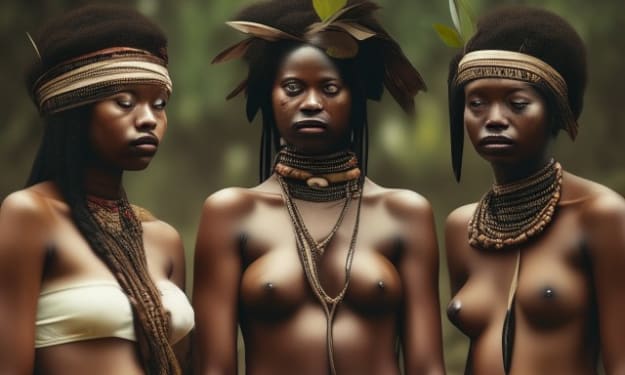Afrobeats: The Irresistible Groove That's Conquering the World
Afrobeats: From African Rhythms to Global Sensation

Africa, the cradle of rhythm, is once again shaking the world with its infectious beats and melodies. Afrobeats, a contemporary music genre that blends traditional African sounds with modern influences, has emerged as a global sensation. In this article, we'll explore the history, characteristics, and global impact of Afrobeats.*
1. The Roots of Afrobeats
Afrobeats, often confused with Afrobeat, is a distinct genre that originated in West Africa, primarily Nigeria and Ghana, during the early 2000s. While Afrobeat, pioneered by the legendary Fela Kuti, is a fusion of jazz, highlife, and funk, Afrobeats takes a more contemporary approach. It draws inspiration from a wide range of genres, including hip-hop, dancehall, reggae, and electronic music, and infuses them with African rhythms.
2. The Pioneers
Several artists played pivotal roles in shaping Afrobeats. One of the earliest trailblazers was Nigerian singer-songwriter D'banj, whose 2004 hit "Tongolo" marked the genre's emergence. Shortly after, artists like Wizkid, Burna Boy, and Davido gained international acclaim, solidifying Afrobeats' presence on the global music scene.
3. Characteristics of Afrobeats
Afrobeats is characterized by its infectious rhythms, energetic melodies, and catchy lyrics. Here are some key elements that define this genre:
- Percussion-Driven Beats: At the heart of Afrobeats are the rhythm-heavy percussion instruments like drums, congas, and talking drums. These elements create an irresistible groove that gets everyone moving.
- Incorporation of Vernacular: Afrobeats often features lyrics in various African languages, adding authenticity and cultural richness to the music. Yet, English is also commonly used, making the songs accessible to a global audience.
- Fusion of Styles: Afrobeats artists fearlessly blend different musical styles. You can hear elements of dancehall, hip-hop, and reggae seamlessly woven into the fabric of the music.
- Innovative Production: Producers play a crucial role in Afrobeats. They experiment with electronic sounds, synths, and innovative production techniques, pushing the boundaries of the genre.
- Infectious Hooks: Afrobeats songs are known for their catchy hooks and choruses that stay with you long after the music stops.
4. The Global Impact
Afrobeats is no longer confined to its African roots. It has transcended borders and is embraced worldwide. Here's why it's making such a significant impact globally:
- Collaborations: Afrobeats artists collaborate with international stars, creating cross-cultural hits. For instance, Wizkid's collaboration with Drake on "One Dance" topped charts worldwide.
- Festival Circuit: Afrobeats has become a staple at music festivals around the world, with dedicated stages and lineups featuring both African and international artists.
- Dance Craze: Afrobeats' infectious rhythm has inspired dance crazes globally, with people from all backgrounds grooving to the music.
- Streaming Success: The rise of streaming platforms has allowed Afrobeats to reach a global audience easily. Songs like Burna Boy's "Ye" have garnered millions of streams.
- Recognition and Awards: Afrobeats artists are gaining recognition on the global stage, winning awards and nominations at prestigious events like the Grammys.
5. The Dance Revolution
One cannot discuss Afrobeats without mentioning its close relationship with dance. The music's infectious rhythms have given rise to numerous dance styles, some of which have gone viral on social media platforms like TikTok. The Azonto, Shaku Shaku, and Gwara Gwara dances are just a few examples of how Afrobeats has become a global dance phenomenon. These dances not only accompany the music but also play a crucial role in its global spread.
6. Challenges and Criticisms
While Afrobeats enjoys global acclaim, it faces its fair share of challenges and criticisms. Some argue that the genre's popularity has led to the commercialization and dilution of its original sound. Others point out the need for more diversity in representation within the genre, as it is primarily dominated by male artists.
7. The Future of Afrobeats
The future of Afrobeats looks promising. Artists continue to innovate and push boundaries, exploring new sonic territories while staying true to their African roots. With a growing global fanbase and increasing recognition, Afrobeats is poised to remain a vibrant and influential genre for years to come.
Conclusion
Afrobeats is more than just music; it's a cultural phenomenon that has transcended borders and captured the hearts of people around the world. Its infectious rhythms, danceable beats, and meaningful lyrics have made it a force to be reckoned with in the music industry. As Afrobeats continues to evolve and expand its reach, it reminds us of the power of music to connect people across continents and cultures, celebrating the rich diversity of the African musical landscape. So, next time you hear that irresistible Afrobeats groove, don't resist – let it move you and be part of this global musical revolution.





Comments
There are no comments for this story
Be the first to respond and start the conversation.